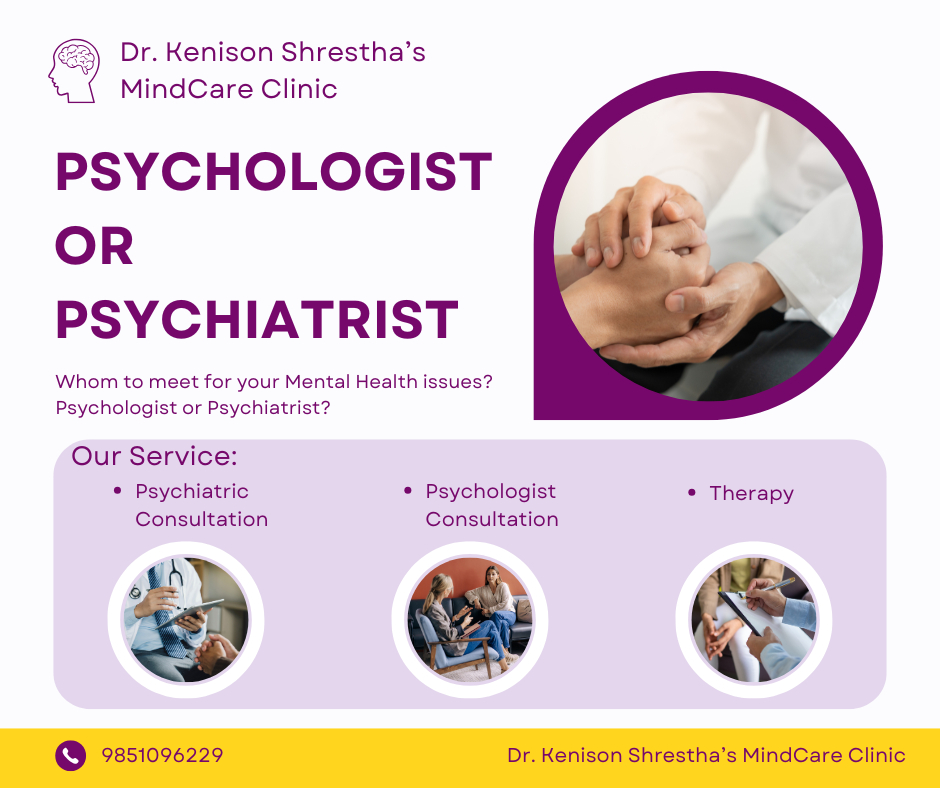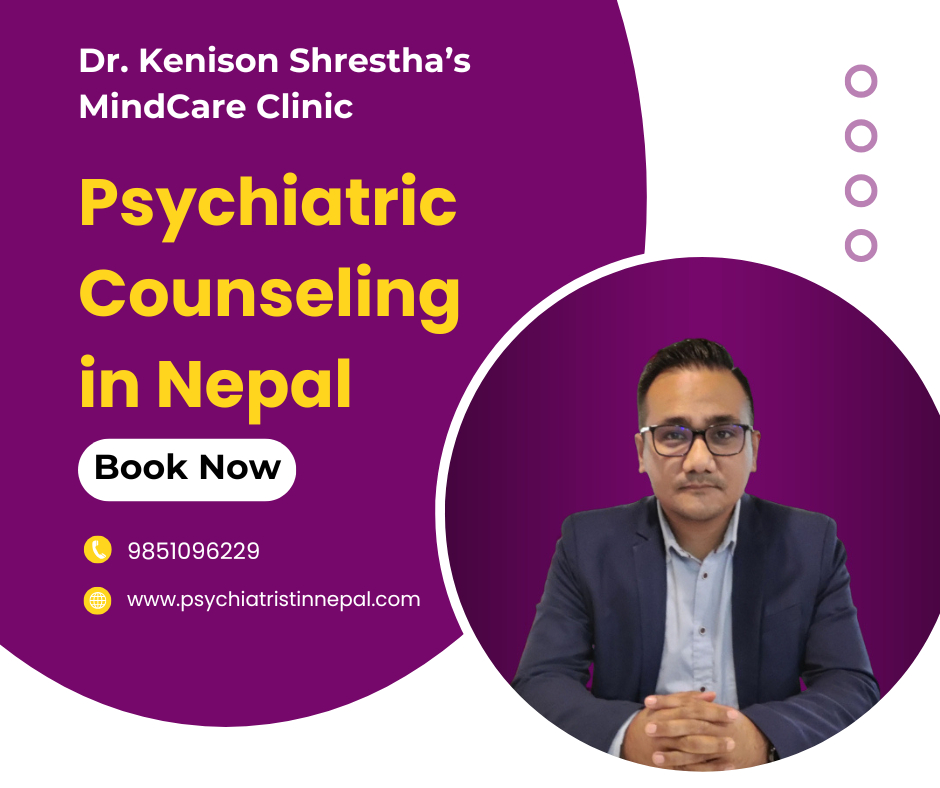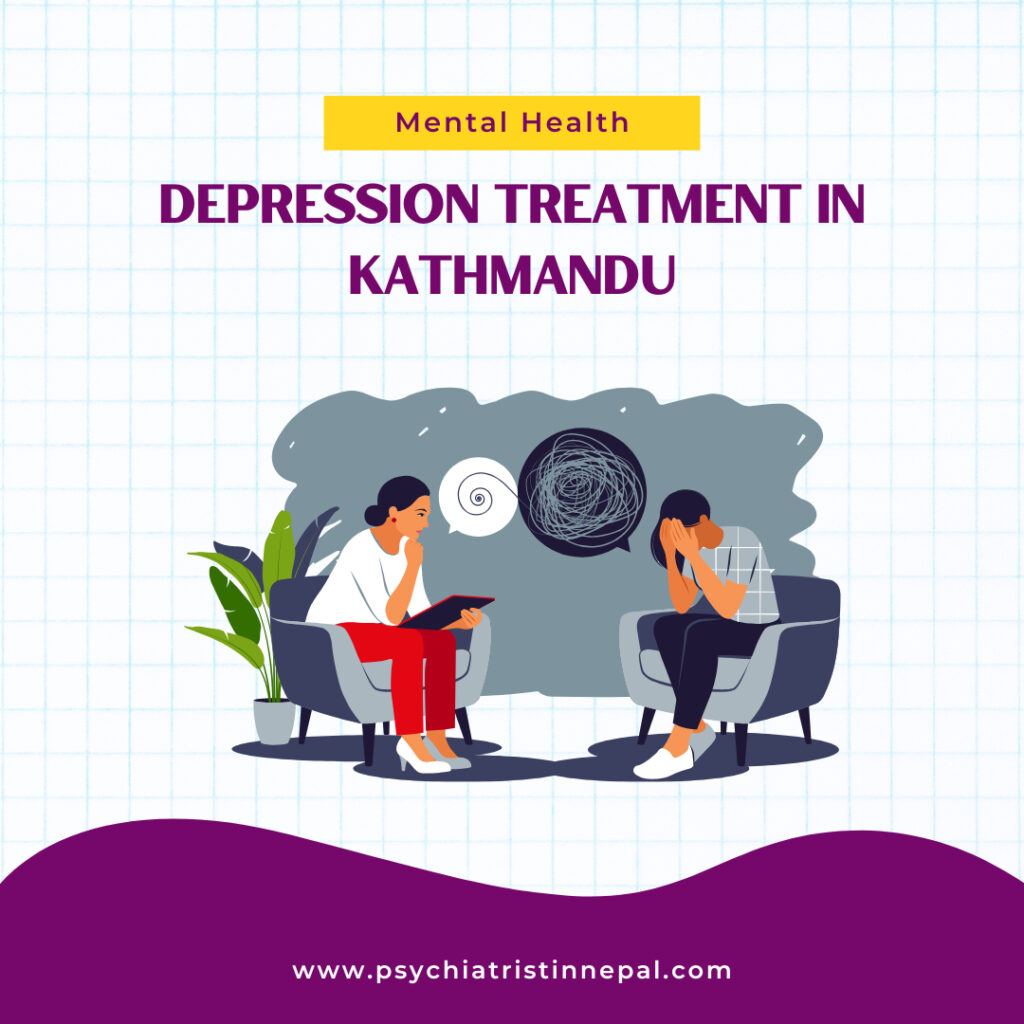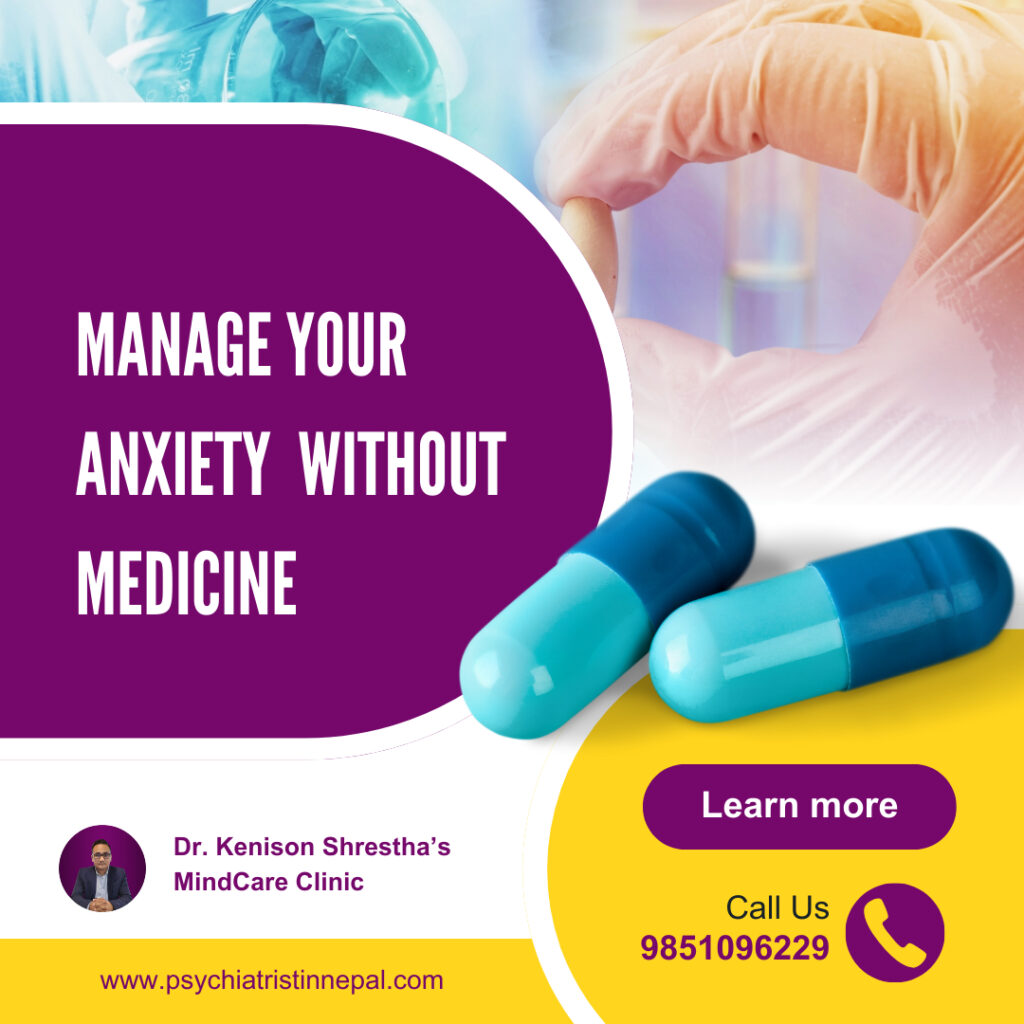Treatment for Anxiety:
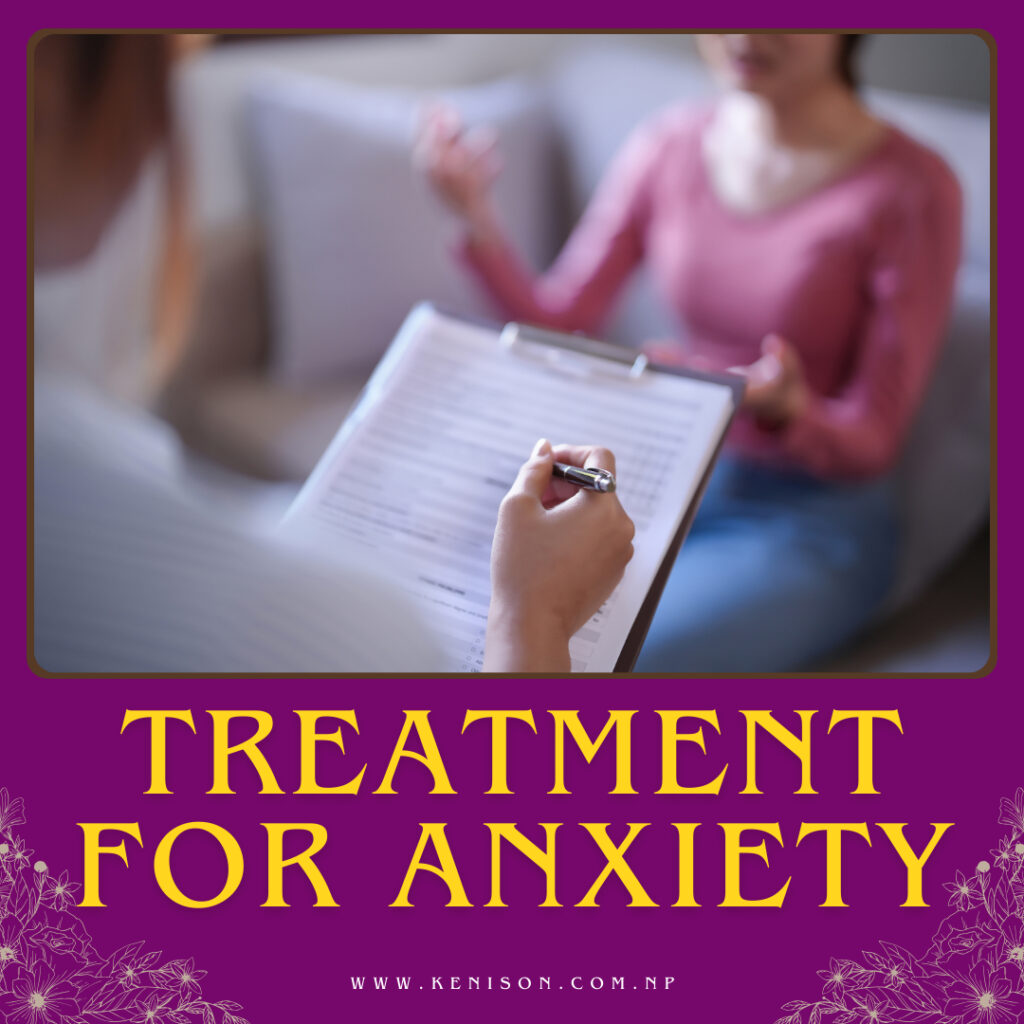
Anxiety is a common mental health issue that significantly impacts your daily functioning. Anxiety can manifest in different forms, which we will be discussing in our blog further.
If you are experiencing Anxiety in Kathmandu, you’re not alone, there are effective treatments available.
Understanding Anxiety
Anxiety disorders are characterized by persistent and excessive worry that may interfere with daily functioning in an individual’s life.
There are several types of Anxiety disorder. Here we have listed types and specific features:
Generalized Anxiety Disorder (GAD):
It involves excessive worrying about various things without any apparent cause.
Social Anxiety Disorder (SAD):
It is characterized by an intense fear of social situations.
Panic Disorder:
It is characterized by sudden and unexpected panic attacks with intense physical symptoms.
Phobic disorder:
It is characterized by irrational fear of specific subjects or situations.
Signs and Symptoms of Anxiety Disorder
Anxiety can manifest in different ways. These symptoms range from emotional, psychological as well as physical symptoms.
Here are some common symptoms:
- Excessive worries and rumination of thoughts.
- Irritability.
- Procrastination.
- Sleep problems.
- Changes in appetite.
- Not able to concentrate.
- Forgetfulness.
- Fatigue, tiredness.
- Restlessness.
- Rapid heartbeat.
- Shortness of breath.
- Tremor of hands.
- Abdominal discomfort.
- The heaviness of the head.
- Dizziness.
Causes of Anxiety Disorders
The exact cause is unknown. However, the development of anxiety disorders is thought to be due to several factors, which are explained in terms of the Bio-Psycho-Social model.
Genetics/ Heredity:
Having an anxiety disorder run in the family increases the risk.
Brain chemistry:
Changes in the neurochemicals in the brain, like serotonin and norepinephrine, may play a role.
Medical condition:
Certain medical conditions (Thyroid disorders, vitamin D deficiency, anemia, vitamin b12 deficiency, and chronic medical conditions) can cause or worsen anxiety symptoms.
Substance abuse:
Use of substances such as Alcohol, Cannabis, or other forms of drugs usually triggers or worsens anxiety symptoms.
Treatment for Anxiety disorders
Treatment of anxiety depends on the severity and nature of anxiety disorders.
Treatment modalities for anxiety disorders are psychotherapy, medications, or a combination of both.
Most of the milder forms of anxiety disorders can be treated with counseling and psychotherapy.
But severe forms of anxiety or those who do not respond to therapy as well as lifestyle modification, may require medication to control the symptoms.
Benefits in treatment for Anxiety Disorders
- Improvement in your coping skills.
- Reduction in your anxiety symptoms.
- Increase your ability to manage your stress.
- Improve your quality of life.
Finding a Psychiatrist in Kathmandu
If you are experiencing Anxiety in Kathmandu, there are several resources to help you find a therapist.
Here are some tips:
- Ask your doctor for a referral.
- Search for online directories.
- Contact mental health organizations or clinics to reach your desired Therapist or Psychiatrist.
Here are some online resources:


